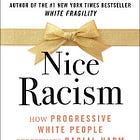Do Canadians want sovereignty, or a better deal?
Nobody likes to be attacked by a bully. But what if the talk of greater integration was from someone else?
I know there is a lot of flag waiving by some Canadians at the moment. I understand that people are emotional. Nobody likes to be attacked by a bully.
When I observe emotions I try to get beneath that and find out what logical information, possibly even goals, can be extracted from these emotions. When I remove the bully, and only look at the underlying policy, I don’t see a strong call for sovereignty in the general conversation amongst Canadian loyalists as much as an expression of slightly different policy goals.
The separatists in the 1775 civil war, which saw 13 of the existing British North American colonies form the United States, had very specific goals in mind. I don’t know if any of the thinking of that era still applies today. I don’t buy into the myth making or marketing that Canada or the USA have done since the formation of those sibling settler-colonial institutions (US or Canadian exceptionalism).
The institutions of Canada are still British loyalist in nature. That doesn’t mean these institutions follow the policy of some person, for those who confuse the British Monarchy (an institution) as a family headed by a person. It also doesn’t mean they follow policy changes made by recent British politicians or governments, but that the institutions of Canada are grounded in British history rather than the history of this continent.
A 3-way fork in the road?
I have a question for the descendants of the “loyalists” and others who have naturalized to the settler-colonial institutions of Canada:
Are they still loyal to British worldviews and wish to maintain or possibly even extend relations with Britain and other parts of the commonwealth (rebranding of British Empire, especially when considering Australia and New Zealand which are also British colonies where settlers greatly outnumber Indigenous peoples)?
Have they become more loyal to US worldviews, but just don’t like the current US government?
Do they actually want to become something else entirely?
If Canadians no longer see themselves as British loyalists, isn’t it time to finally decide if they see themselves as entirely separate from the USA in some meaningful way, or merely a branch of it with some specific policy differences?
Maybe most Canadians would be happy if there was a discussion of a friendly merger rather than a bully takeover? Is that then really about a problem with the negotiator than an actual desire for sovereignty?
While I would personally prefer the “something else” direction, it feels to me that I’m part of a very small minority that feels that way.
Policy areas of disagreement
First, I don’t buy the idea that there is a huge difference between the USA and Canada when it comes to racism (a systemically imposed social hierarchy – nothing to do with some rude uncle), settler-colonialism, or any of the other larger Western European worldviews. Canadians may seek to be seen as polite while US citizens are loud-and-proud, but that isn’t a difference in policy or ideology.
There are some core policy differences caused by the way Canada was formed differently than the USA.
What if instead of the nonsense idea of “Canada” becoming the 51’st state, we were talking about changing the USA (Constitution, etc) to allow the northern regions to maintain specific policies, but become part of a larger “federation’.
If Alaska can be a state, then obviously Yukon, North West Territories and Nunavut could each become states.
This means at minimum we are talking about 13 new states, possibly more given it never made sense for some of the extensions into the Northwestern Territories of some of the provinces (more an occupation than a friendly merger).
The Canadian Constitution is clear on specific jurisdiction in ways that the USA is not, a problem that some constitutional amendments could fix.
If these changes were made, would there still be objections to that larger union? The USA is dealing with an antique Constitution in serious need of amendments and/or replacement anyway.
Constitutional differences
The Canadian constitution has a part (sections 91-95) that sets out exclusive jurisdiction between the federal and provincial governments. While there are regular disagreements, with some provincial governments wanting more jurisdiction to be passed to the provinces, and some federal governments stepping in provincial jurisdiction, the separation is relatively clear.
In the USA there seems to be a constant debate about how to interpret of the Supremacy Clause in Article VI of that Constitution and the Tenth amendment.
One of the common issues between Canada and the USA has been an inability to come together to modernize their constitutions. As hard as it may be, this is the level of more mature thinking that is needed to actually seriously contemplate any real type of continental integration.
Public Healthcare and Education
Part of the so-called “intolerable acts” that caused the 13 colonies to launch a civil war (1775 to 1783) to politically separate from the rest of the British North American colonies related to agreements that Britain made with France after the so-called Seven Years' War (1756 to 1763). There were already French settlers on the continent, and while the land would come under British control after the war, British settlers were disallowed to genocide French people and Roman Catholics (French Christianity was under the Roman monarchy – Pope – while Britain’s Church of England kept the catholic hierarchy, but under the British Monarchy).
After the second civil war between British colonies (1861 to 1865), the British wanted to consolidate remaining loyalist colonies. The negotiation between the British and French included the Catholic Church wanting to continue to control Healthcare and Education within specific French regions, which led to Healthcare and Education being the exclusive jurisdiction of provinces. In 1867 the first British North America Act was passed, creating the Canadian province of Ontario and the Canadian province of Quebec. (Nova Scotia and New Brunswick had existing boundaries, and those colonies became Canadian provinces at the same time).
This history is critical to what makes Canada what it is today, and the types of policies which differentiate Canada and the USA. Healthcare and Education are the exclusive jurisdiction of Provinces, and are paid for through Provincial taxes. While Canada is also a racist set of institutions, pushing payment for these services to municipalities was not done in order to impose ongoing segregationist policies.
Suggested US constitutional amendments:
Healthcare and Education become the exclusive jurisdiction of state governments
Healthcare and Education must be funded from state taxes rather than municipal taxes
Any state, including but not limited to potential new northern states, must be protected in their right to have a single-payer medical insurance policy.
Recognition of the Rights of Indigenous Peoples
The British parliament made changes to Canada’s constitution in 1982 which for the first time allowed parliaments on this continent to change the Canadian constitution. Along with this was sections which added some recognition of the Rights of Indigenous Peoples into Canada’s constitution, a recognition of obligations that the Crown already had.
Aboriginal rights and freedoms not affected by Charter
25 The guarantee in this Charter of certain rights and freedoms shall not be construed so as to abrogate or derogate from any aboriginal, treaty or other rights or freedoms that pertain to the aboriginal peoples of Canada including
(a) any rights or freedoms that have been recognized by the Royal Proclamation of October 7, 1763; and
(b) any rights or freedoms that may be acquired by the aboriginal peoples of Canada by way of land claims settlement.
Recognition of existing aboriginal and treaty rights35 (1)The existing aboriginal and treaty rights of the aboriginal peoples of Canada are hereby recognized and affirmed.
(2) [Definition of “aboriginal peoples of Canada”] In this Act, “aboriginal peoples of Canada” includes the Indian, Inuit and Metis peoples of Canada.
This should be thought of as a minimum for an amendment to the US constitution, given that since that time Canada and the USA have taken on obligations related to the United Nations Declaration on the Rights of Indigenous Peoples.
Treaties were made with the Crown, and were what allowed European settlers to be on this continent in the first place. The alleged “War” that British colonies “won” against all domestic nations never happened, and what we have actually been observing is how these scofflaw colonies treat their allies.
While I am aware that the USA does not wish to honour treaty obligations, regardless of who the treaty is with, having “Freedom from Responsibility” be the primary Freedom the government protects is not something I see as shared by Canadians. While many Canadian laws may also shirk responsibility, this is not how Canadians see themselves.
Free speech vs Fee speech
Canada and the USA have been heading in different directions as far as what constitutes “Free Speech”. Citizens United v. Federal Election Commission, 558 U.S. 310 (2010) is an example of the direction the USA has been heading, while Canada has been passing laws to create additional limits on the manipulation of political institutions by money and foreign interference.
Suggested US constitutional amendments:
Clarify that money is not speech, and the equitable free speech of citizens must be protected from the undue influence of money in politics.
Clarity that foreign speech is not protected free speech, to restrict foreign interference in domestic democratic institutions.
Free and Fair elections
There are many reasons not to trust US democratic institutions. While I have concerns about Canadian democratic institutions, they are still far better than what has become of US institutions.
Ban the use of ballotless voting machines.
All votes for any public office should have a voter verifiable ballot, and be able to be subjected to a recount. In Canada there is heavy use of ballot scanners. While there are more questions on US ballots, and there is more of an incentive to use computers to generate ballots, the need for a ballot still exists.
Fix Senate seat count and Electoral college
There is no way for those who framed the US constitution to have predicted the huge differences in population between states, nor would they have predicted that such outdated policies would have been maintained for so long.
Having the identical number of senate seats (2) for each state, regardless of population, makes no sense in this century.
The same is true of the electoral college which is really stuck in ideas that have not applied to this continent since the 1700’s. While the concept was to ensure that the presidency represented “these United States”, constant centralizing of power into the executive branch (Presidency) over the centuries has made it clear that the position is being treated as the President of “THE United States”.
Note: Contrary to partisan myths, this centralization of power is not a unique Trump regime problem, or even a Republican Party problem. This is a bipartisan issue that has grown worse across many presidencies.
Other areas of policy
While I wish the USA were keeping a better balance between the Executive Branch (Presidency), Legislative Branch (Congress) and the Judicial Branch, this is not a difference Canadians appear concerned with. The same centralization of power into the Executive Branch is happening in Canada.
This weekend the Liberal party of Canada is having their Leadership Primary, with the Liberals being the first “Canadian” party to have adopted the US-style primary system (party members voting) rather than having leaders fully accountable to Party Caucuses as is the case in other Westminster style parliamentary democracies.
This centralization of power into the executive crosses all parties in the USA and Canada, and is one of the reasons I don’t take the performative concerns by New or Classic Democrats of a centralized “right wing takeover” very seriously. These self-called Democrats don’t shown concern for the health of democratic institutions, and seem narrowly concerned with their own team jersey “winning” more control.
There are many policies where I wish Canada and the USA would do better and be better, but the purpose of this article is to contemplate areas that are different between the USA and Canada. In my observation, there aren’t as many real differences as Canadians like to suggest.











Although I applaud the attempt to separate emotions from logic, I think in this day and age the success of Trump and other populists show that emotions matter and speak to the masses. I am voting for emotion and glad that Canadians have become patriotic.
Regarding your point, yes if the integration was proposed not by a bully, but perhaps by someone like Biden, maybe Canadians would have been opened to it. But it comes from Trump who likes Putin, as we can all see lately, so it’s a no. The other point is that Canada is different that the States, and USA like any big empire is in decline. Why would we become part of country that is in decline, that has more inequality, where it’s great to be rich but very very bad to be poor? With all the problems Canada has, we are not as divided as the USA.
I think this is an opportunity for Canada to become ambitious, economically to focus on the entire world, to invest in défense and innovation.
I believe that logic and emotions are inseparable, but I agree that the vast majority of Canadians are not currently able to think about these issues logically (yet). Great post. 👊